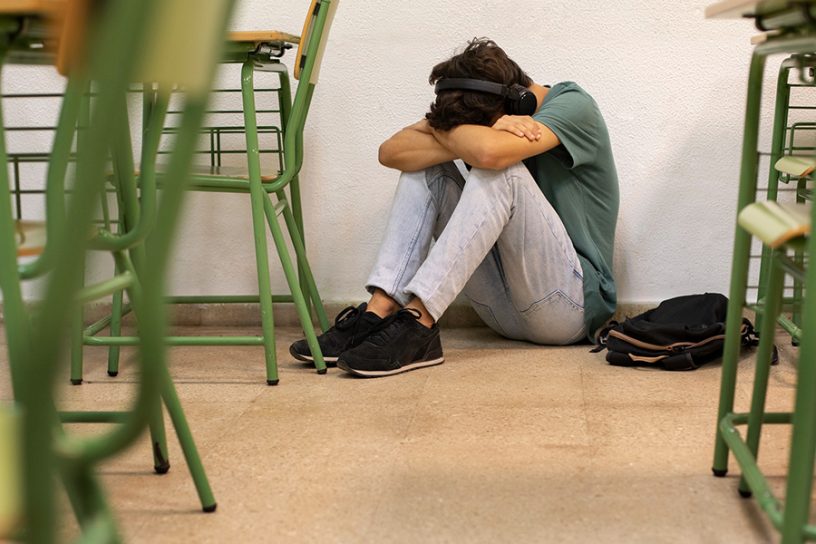
The researchers observed a limited uptake of the remote programme in the targeted population of secondary school pupils during the period of COVID-19 related school closures, with enrolment mostly restricted to older adolescents.
Authors
Kanika Malik, Associate Professor, Jindal School of Psychology and Counselling, O.P. Jindal Global University, Sonipat, Haryana, India; PRIDE Project, Sangath, New Delhi 110030, India.
Tejaswi Shetty, PRIDE Project, Sangath, New Delhi 110030, India.
Sonal Mathur, PRIDE Project, Sangath, New Delhi 110030, India.
James E. Jose, PRIDE Project, Sangath, New Delhi 110030, India.
Rhea Mathews, PRIDE Project, Sangath, New Delhi 110030, India.
Manogya Sahay, PRIDE Project, Sangath, New Delhi 110030, India.
Preeti Chauhan, PRIDE Project, Sangath, New Delhi 110030, India.
Pooja Nair, PRIDE Project, Sangath, New Delhi 110030, India.
Vikram Patel, Department of Global Health and Social Medicine, Harvard Medical School, Boston, MA 02115, USA; Department of Global Health and Population, Harvard TH Chan School of Public Health, Boston, MA 02115, USA.
Daniel Michelson, School of Psychology, University of Sussex, Brighton BN1 9RH, UK; Department of Child and Adolescent Psychiatry, Institute of Psychiatry, Psychology and Neuroscience, King’s College London, London SE5 8AF, UK
Summary
Remote mental health services were rapidly deployed during the COVID-19 pandemic, yet there is relatively little contemporaneous evidence on their feasibility and acceptability. This study assessed the feasibility and acceptability of a stepped care mental health programme delivered remotely by lay counsellors to adolescents in New Delhi, India, during a period of ‘lockdown’.
The programme consisted of a brief problem-solving intervention (“Step 1”) followed by a tailored behavioural module (“Step 2”) for non-responders. We enrolled 34 participants (M age = 16.4 years) with a self-identified need for psychological support. Feasibility and acceptability were assessed through quantitative process indicators and qualitative interviews (n = 17 adolescents; n = 5 counsellors). Thirty-one (91%) adolescents started Step 1 and 16 (52%) completed the planned Step 1 protocol. Twelve (75%) of the Step 1 completers were non-responsive. Eight (67%) non-responsive cases started Step 2, all of whom met response criteria when reassessed at 12 weeks post-enrolment.
Adolescents favoured voice-only sessions over video-calls due to privacy concerns and difficulties accessing suitable devices. Counsellors noted challenges of completing remote sessions within the allotted time while recognising the importance of supervision for developing competence in new ways of working. Both adolescents and counsellors discussed the importance of working collaboratively and flexibly to fit around individual preferences and circumstances. Disentangling pandemic-specific barriers from more routine challenges to remote delivery should be a focus of future research.
Published in: International Journal of Environmental Research and Public Health
To read the full article, please click here.


